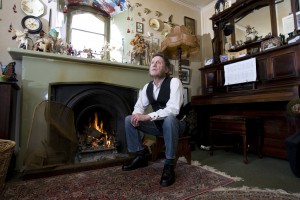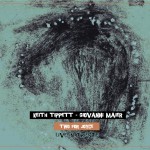Keith and Julie Tippett are among the most important European jazz musicians (improvisers, composers, arrangers) in the last 40 years. The extent of their work is vast both individually and as a couple; here is a short story around an epic journey.
Keith Tippett has become the father figure of postmodern jazz piano in the UK. The only dispute in such a statement is the word ‘jazz’; used here to describe a music extending way beyond the bounds of music rooted in “the great American moment”. Keith Tippett has created and fashioned a form of spontaneous composition that finds its setting in totally unique solo piano studies via quartets, sextets, octets and large scale interactive jazz orchestras, fusing compositional arrangements with detailed instant improvising (Centipede, Ark, the Georgian Ensemble and Tapestry Orchestra). The breadth of his activity trips the imagination into a massive canon of possibilities and resolutions. For example his work with Louis Moholo-Moholo and the other ‘Blue Notes’ musicians exiled from South Africa in the 1960’s, plus his on-going commissions in contemporary music composition including the stunning ‘Linukea’ Piano Quintet, his key role in the legendary decades-driven quartet, Mujician with Paul Dunmall, Paul Rogers and Tony Levin, and finally, at the heart of it all, the essential core duo of Couple In Spirit with Julie Tippetts. The conclusion is starkly obvious, we are faced with a phenomenon way, way outside any kind of regular understanding of British ‘jazz’ and improvisation.
A singer beyond song, the great Julie Tippetts (the ‘s’ is a story for another day) is, perhaps inevitably, bound up in most of the above paragraph referring to her husband. Although she is a central catalyst in his work, her importance is also as a poet and creator of a distinctly independent language within the song form, a crucial factor in their collective story. In 1967 as Julie Driscoll with Brian Auger’s Trinity, she scored a hit record with ‘This Wheel’s on Fire’. Within two years Julie by-passed popular music conventions, painstakingly exploring her way into what would become a whole new vocabulary of soundscape. By the early 1970’s her presence in the pioneering quartet version of Ovary Lodge with Keith laid the foundations for improvisation as a unique form of instant composition. Today her voice remains a panoply of experimentation. The Western song form is not rejected yet neither are Keith and Julie Tippett confined by it. Julie has produced her own canon of recordings, including ‘Ghosts of Gold’ and ‘Tales of Finin’, collaborative works with computer wizard and multi-instrumentalist Martin Archer. ‘Tales’ was voted a Jazzwise magazine 2011 ‘Record of the Year’. Other collaborators at different times have included John Stevens, Maggie Nicols, Carla Bley and Robert Wyatt.
Any attempt to summarise Keith and Julie Tippett on one side of paper leaves out more than it includes. Although hugely influential Keith Tippett is a mysterious figure. His in-depth interview in 2010 on the BBC Radio 3 Jazz Library series revealed the scope and brilliance of his vision. As the title ‘Supernova’ (his piano duet with Stan Tracey released in 2008) suggests, this is music which literally explodes the possible. The fusion with Julie Tippetts is intensely personal yet totally crucial to their distinctly different kind of feast for the ears. To listen to the eloquence of 2011’s Octet recording ‘From Granite to Wind’ is to hear this Couple In Spirit siphoning the soul of their own Great Experiment.
Written by Steve Day, 2012: ‘Two Full Ears – Listening To Improvised Music’ (Soundworld); ‘Song of The Fly’ (Leo Records)

